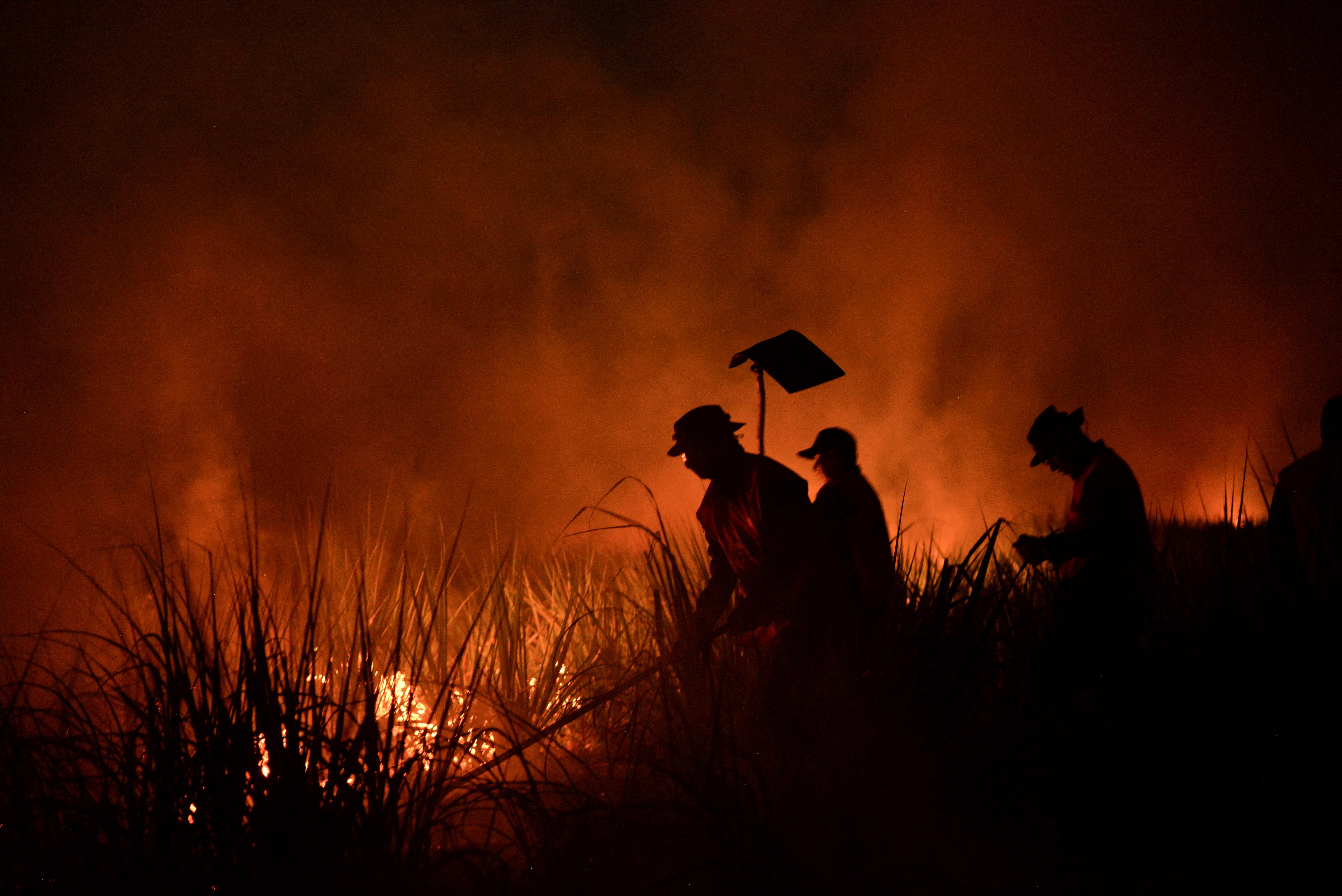This is what Cop28 needs to address to avoid climate catastrophe
The world is on its way to exceeding a 1.5C increase in the global temperature, writes climate expert Professor Tim Benton. Our leaders can stop it – but they have to act now

In the run-up to the Cop28 climate conference in Dubai, optimism has been in scant supply.
Russia’s war in Ukraine and now the war between Israel and Hamas has ratcheted up tension, enhancing distrust and undermining willingness to cooperate, and reinforcing the idea that fossil fuels are key to energy security in turbulent times.
This palpable distrust was not helped by revelations this week that the Cop presidency had allegedly planned to use Cop28 as an opportunity to discuss new oil and gas deals for the UAE. This has led to yet further calls for the Cop president, Dr Sultan Al Jaber – notably also head of the Abu Dhabi National Oil Company – to step down. The UAE team said meetings were private and insists it is still focused on delivering “meaningful climate action”.
On Monday, OPEC (The Organisation of the Petroleum Exporting Countries) struck back at critical claims in an International Energy Agency report which said oil and gas producers have been only a “marginal force” in the energy transition – saying the industry “must not be vilified”.
All this feeds into the suspicion that petro-states, vested interests and Cop28 itself will resist efforts to the phasing down or out of fossil fuels. Climate campaigner Greta Thunberg said that Cop – the annual meeting of the parties to the United Nations Framework Convention on Climate Change – has been “hijacked by fossil fuel lobbyists” and is incapable of delivering anything other than greenwashing. So is there even a risk that inherent tensions erupt to undermine previous agreements?
Cop28 is a milestone in the Paris Agreement process – the consensus reached by almost 200 countries in 2015 to hold the increase in global temperatures to well below 2C above pre-industrial levels and to attempt to it within 1.5C.
The agreement was based on countries putting together their short-term plans which are then collectively assessed in a “global stocktake” and used to drive greater ambition in the next set of goals. Cop28 is the first stocktake, and the technical report highlights how far off the world is from a 1.5C pathway.
Currently, the world is on track to being 2.5-2.9C warmer by the end of the century. Extreme weather is already a daily event, 2023 will be the warmest year on record and perhaps this year or next the average global temperature may cross the 1.5C threshold temporarily.
With 1.5C seemingly slipping out of reach, one element of Cop28 will be whether the politics of the Paris Agreement will itself come under strain. One of the major stumbling blocks of previous summits has been the onus on high-income countries to lead the rest of the world.
Key to this is the $100bn of annual climate financing promised back in 2009 to lower–income nations, but still not transparently delivered. The new “loss and damage fund” agreed at Cop27 needs money from high-income countries to work: but how much will be donated?
Many look towards the planet’s biggest emitters – China, the US, Russia and India in particular – for indications of real commitment. But geo-political tensions between these great nations have rarely been so high. A meeting between Presidents Biden and Xi did present some optimism on climate, although details are yet to be seen. The conflict in Israel, the occupied territories and Gaza, and a threat of escalating regional violence have done little to calm nerves in Dubai; distrust is rife.
So, are there any reasons to be cheerful? The Paris agreement is not not working – climate action collectively has reduced emissions and brought down the original trajectory from 3.6-4.2C warming to the “current policies” scenario of 2.6-2.9C. If countries adopted all of their previous pledges and targets, 2C remains within reach, so there remains hope of accelerated ambition.
Progress is being made: China is currently predicted to hit its wind and solar target five years early, and is estimated to deploy over 200 GW of solar in 2023 (approximately double the entire US installed capacity). There is a growing consensus that setting global deployment targets is the way to energise action.
There is a new focus on the vital area of transforming food systems, which in the past were perhaps too politically complex to address, and progress on new alliances finding a voice and trying to change the art of what is possible.
Agreements on limiting emissions like those reached in Paris are the last bastions of a multilateral approach to our greatest shared global problems – with the United Nations, World Trade Organisation and other post-Second World War Bretton Woods bodies weakened in the modern world.
But any success in Dubai will be judged on delivering what is already on the table: ambitious targets, significant loss and damage funds, greater focus on adaptation and, most importantly, an urgent sense that action will happen. We cannot delay until Cop29, or when some future technology emerges to save us.
A weak Cop28 result will simply mean more action, more cost and more disruption needed in future. As we power towards – and possibly past – 1.5C, and away from our ability to mitigate and adapt to climate change, will Cops, and the Paris Agreement, survive without radical change?
That is the challenge the world faces this week – and we can’t afford for our leaders to let us down.
Professor Tim Benton leads the Environment and Society Centre at Chatham House






Join our commenting forum
Join thought-provoking conversations, follow other Independent readers and see their replies
Comments